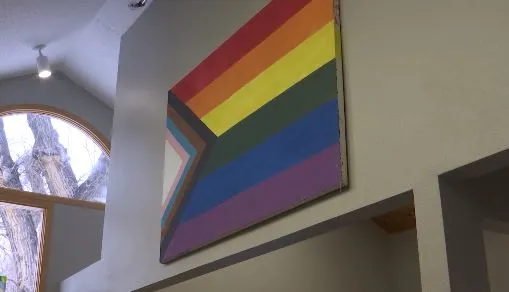Bismarck, ND — A new report released by North Dakota health agencies reveals alarming disparities faced by LGBTQ youth in the state, with findings highlighting significantly higher risks of physical, emotional, and sexual harm compared to their heterosexual peers. The study, conducted by the Harbor Health Initiative and Faye Seidler Consulting, analyzed data from the Youth Risk Behavior Survey and has prompted calls for increased intervention and support for LGBTQ youth in the state.
According to the report, LGBTQ youth in North Dakota experience not only higher levels of trauma but also a lack of access to essential resources such as food, housing, and social support. Researchers found that these young people are disproportionately affected by mental health struggles, including suicidal thoughts and self-harm. In many cases, these issues occur at rates two to three times higher than those observed in the general, heterosexual youth population.
The study also sheds light on the increased prevalence of bullying and sexual violence among LGBTQ youth. The rates of these harmful experiences were again found to be significantly higher compared to those faced by straight youth, with some data showing that LGBTQ youth are twice as likely to encounter such abuse.
Mark Heinert, Assistant Executive Director of YouthWorks, emphasized the importance of creating a safe and supportive environment for all young people. “All young people that we work with deserve to have a safe place to belong and a safe place to be heard. And it really should not matter. It should not matter in any way, shape, or form what their race is, what their sexual orientation is, what their gender identity is — all of us deserve to have a safe place,” Heinert said.
The findings of this groundbreaking report underscore the urgent need for the state government to take action to address these disparities and ensure that LGBTQ youth have the resources and protections they need to thrive. With rates of trauma, mental health struggles, and violence disproportionately impacting this community, advocates are calling for a more robust response from both state and local leaders to ensure the safety and well-being of all young people, regardless of their sexual orientation or gender identity.


